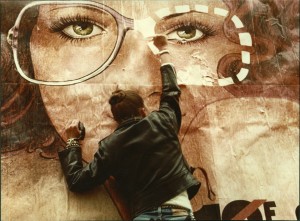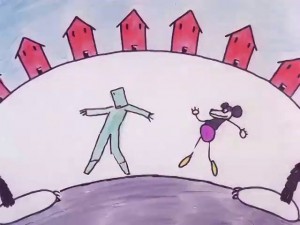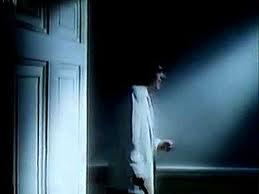Lights up! A few final words on the [New York] film festival [in 1981]
From the Soho News, October 20, 1981. Girish Shambu’s post on Facebook about Jacques Rivette’s Le Pont de Nord having “just popped up at both MUBI and Fandor on streaming” led me to unearth my original review of the film, which I’ve neglected to scan or post before now. — J.R.
At a juncture like this. the New York festival splits into disassociated sections for me. One part furnishes a launching pad for a commercial venture that scarcely needs it, while the other is furnishing us with a tantalizing glimpse of movies that something called Commerce is otherwise steadily denying us. (Mutatis mutandis, the same can be said for the highly uneven collection of shorts shown with the festival features. It’s hard to know when or if my own two favorites — George Griffin’s Flying Fur, a wild burst of contemporary animation energy set to an old Tom and Jerry soundtrack, and Clare Peploe’s beautifully shot comic English sketch, Couples & Robbers, about a middle-class straight couple and an upper-class gay couple and how their lives and goods interact –- might turn up again, so I’m grateful to the festival for letting me see them.)
With Truffaut’s La Femme d’à côté (The Woman Next Door) and Jacques Rivette’s Le Pont du nord (North Bridge), both New Wave veterans are giving us mixtures that we’ve seen in their works before. Read more



